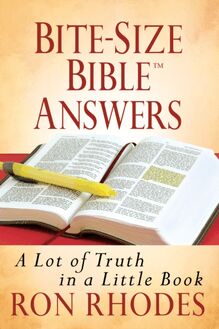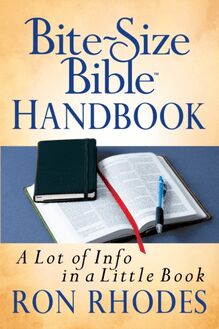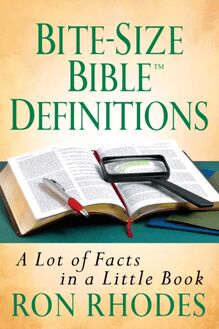-
 Univers
Univers
-
 Ebooks
Ebooks
-
 Livres audio
Livres audio
-
 Presse
Presse
-
 Podcasts
Podcasts
-
 BD
BD
-
 Documents
Documents
-
- Cours
- Révisions
- Ressources pédagogiques
- Sciences de l’éducation
- Manuels scolaires
- Langues
- Travaux de classe
- Annales de BEP
- Etudes supérieures
- Maternelle et primaire
- Fiches de lecture
- Orientation scolaire
- Méthodologie
- Corrigés de devoir
- Annales d’examens et concours
- Annales du bac
- Annales du brevet
- Rapports de stage
La lecture à portée de main
Vous pourrez modifier la taille du texte de cet ouvrage
Découvre YouScribe en t'inscrivant gratuitement
Je m'inscrisDécouvre YouScribe en t'inscrivant gratuitement
Je m'inscrisEn savoir plus
Vous pourrez modifier la taille du texte de cet ouvrage
En savoir plus

Description
Sujets
Informations
| Publié par | Harvest House Publishers, Inc. |
| Date de parution | 01 août 2011 |
| Nombre de lectures | 0 |
| EAN13 | 9780736941211 |
| Langue | English |
Informations légales : prix de location à la page 0,0323€. Cette information est donnée uniquement à titre indicatif conformément à la législation en vigueur.
Extrait
B ITE -S IZE B IBLE D EFINITIONS
RON RHODES
HARVEST HOUSE PUBLISHERS EUGENE, OREGON
Except where noted, scripture quotations are from the New American Standard Bible , 1960, 1962, 1963, 1968, 1971, 1972, 1973, 1975, 1977, 1995 by The Lockman Foundation. Used by permission. ( www.Lockman.org )
Scripture quotations marked ( NIV ) are taken from the Holy Bible, New International Version , NIV . Copyright 1973, 1978, 1984 by Biblica, Inc. Used by permission of Zondervan. All rights reserved worldwide.
Verses marked NKJV are taken from the New King James Version. Copyright 1982 by Thomas Nelson, Inc. Used by permission. All rights reserved.
Verses marked ESV are from The Holy Bible, English Standard Version, copyright 2001 by Crossway Bibles, a division of Good News Publishers. Used by permission. All rights reserved.
Verses marked KJV are taken from the King James Version of the Bible.
Cover by Dugan Design Group, Bloomington, Minnesota
BITE-SIZE BIBLE DEFINITIONS
Copyright 2011 by Ron Rhodes Published by Harvest House Publishers Eugene, Oregon 97402 www.harvesthousepublishers.com
ISBN 978-0-7369-3729-0 (Trade) ISBN 978-0-7369-4121-1 (eBook)
All rights reserved. No part of this publication may be reproduced, stored in a retrieval system, or transmitted in any form or by any means-electronic, mechanical, digital, photocopy, recording, or any other-except for brief quotations in printed reviews, without the prior permission of the publisher.
Printed in the United States of America
11 12 13 14 15 16 17 / BP-NI / 10 9 8 7 6 5 4 3 2 1
Contents
Acknowledgments
Introduction
Bite-Size Bible Definitions
A
B
C
D
E
F
G
H
I
J
K
L
M
N
O
P
R
S
T
U
V
W
Y
Z
Harvest House Books by Ron Rhodes
To all who seek to be doers of the word, and not merely hearers who delude themselves
(James 1:22)
Acknowledgments
I want to give a heartfelt thanks to the team at Harvest House Publishers for their continued commitment to excellence in Christian publishing. And as always, a big hug goes to my wife, Kerri, and our two children, David and Kylie, for their never-ending love and support.
Introduction
W hat a tremendous gift God has given us in the Bible!
The word Bible means book. The Bible is God s book for us. It s much like a manufacturer s handbook that instructs us how to operate our lives (2 Timothy 3:15-17).
The Bible is also like a pair of eyeglasses. Without the eyeglasses, we don t see clearly. But with the eyeglasses, all comes into clear focus (Psalm 119:18).
The Bible is also like a lamp. It sheds light on our path and helps us to see our way clearly (see Psalm 119:105).
The Bible is also like an anchor. Just as an anchor keeps a boat from floating away, so the Bible is an anchor for us. It prevents us from being swept away when a tidal wave of adversity comes our way (Hebrews 6:17-19).
The Bible is also like food (Matthew 4:4). It gives us spiritual nourishment. If we don t feed on God s Word, we become spiritually malnourished.
Lastly, the Bible is like a love letter or Valentine card from God to us. It reveals God s great love for us, which motivated Him to send Jesus into the world to die for our sins so we could be saved (John 3:16-17).
I ve written Bite-Size Bible Definitions to help you better understand the Bible. With most of the Bible terms in the book, I ve included Scripture references that contain broad information that illuminates the meaning of the terms, without necessarily mentioning the terms themselves. Such references are not intended to provide precise definitions (the Bible was not written as a dictionary). Instead, the verses will further your understanding of the terms by providing examples of how the Bible authors used them in different contexts.
I most commonly include terms as they appear in the New American Standard Bible (NASB), but as you ll see, occasionally the most familiar version of the term appears in the New International Version (NIV), English Standard Version (ESV), King James Version (KJV), or New King James Version ( NKJV ) instead.
In some instances, I ve included the literal meaning of a term in parentheses immediately after the term, like this:
Adonijah (Yahweh is my Lord): the fourth son of David (2 Samuel 3:4).
May this brief resource increase your understanding of-and excitement about-the Word of God!
Bite-Size Bible Definitions
A
Aaron: Moses older brother and spokesman (Exodus 7:12,7-10,19). Aaron and his two sons are the forerunners of the Israelites Aaronic priesthood (Exodus 24:1; Leviticus 8-9). Aaron was from the tribe of Levi, and the Levites were set apart for priestly and religious duties. Aaron had a lapse in judgment when he participated in molding a golden calf (Exodus 32).
Abaddon: the place of the dead (Job 26:6 NIV ). Also, a destroyer angel of the bottomless pit (Revelation 9:11 NKJV ).
Abba: a term of endearment, akin to daddy or papa (Mark 14:36; Romans 8:15).
Abednego: the Chaldee name given to Azariah, one of Daniel s companions (Daniel 1:7; 2:17) who was delivered from a burning furnace after refusing to worship an idol (3:12-30).
Abel: the second son of Adam and Eve, who was both righteous and full of faith (Hebrews 11:4). Cain, his older brother, murdered him because God accepted Abel s sacrifice but not Cain s (Genesis 4:1-16; Matthew 23:35). Abel gave not only the firstborn of his flock, but even the choicest of the firstborn.
Abimelech: the Philistine king of Gerar in the time of Abraham (Genesis 20:1-18). Also, the son of Abiathar, a high priest in the time of David (1 Chronicles 18:16).
Abiram: a son of Eliab who joined Korah in opposing Moses and Aaron. He and the other conspirators were swallowed up by an earthquake (Numbers 16:1-33; 26:9-10; Psalm 106:17).
Abner: King Saul s uncle and the commander of his army (1 Samuel 14:50; 17:55; 20:25). He became loyal to David (2 Samuel 3:12-13), and David mourned for him after Joab killed him (2 Samuel 3:33-38).
Abomination: something that is detested, often because of idolatry (Isaiah 44:19; 66:3; Ezekiel 22:11; Daniel 11:31; Matthew 24:15; Revelation 17:4).
Abomination of Desolation: a barbaric act of idolatry in which the antichrist will desecrate the Jewish temple by setting up an image of himself in it (Daniel 9:27; 11:31; 12:11; Matthew 24:15).
Abraham (father of a multitude): a patriarch who lived around 2000 BC. He originated from the city of Ur, in Mesopotamia, on the River Euphrates. God called him to leave Ur and go to the land of Canaan (Genesis 12:1). Abraham left with his wife, Sarah, and his nephew, Lot. Upon arriving in Canaan, his first act was to construct an altar to worship God. Abraham is an important ancestor of Jesus Christ (Matthew 1:1) and the father of all the faithful (Romans 4:16).
Abraham s Bosom: a metaphorical description of heaven, paradise, or the presence of God (Luke 16:23).
Abrahamic Covenant: God s promise that Abraham s descendants would be as numerous as the stars in the sky (Genesis 12:1-3; 13:14-17; 15:5). The promise may have seemed unbelievable to Abraham because his wife was childless (11:30). Yet Abraham did not doubt God; he knew God would faithfully give what He had promised. God reaffirmed the covenant in Genesis 15, perhaps to emphasize to Abraham that even in his advanced age, the promise would come to pass. God also promised Abraham that he would be personally blessed, that his name would become great, that those who bless him would be blessed and those who curse him would be cursed, and that all the families of the earth would be blessed through his posterity.
Absalom: a son of King David (2 Samuel 3:3) who rebelled against him and almost succeeded in usurping his throne (18:33).
Abyss: the abode of imprisoned demons or disobedient spirits (Revelation 9:1-21).
Achan: a man from the tribe of Judah who disobeyed God s command by taking plunder at the conquest of Jericho. This crime resulted in the Israelites defeat at Ai. Achan was promptly executed for his offense (Joshua 7).
Acts: part two of Luke s Gospel. The first book contains an orderly account of Jesus accomplishments during His earthly life, and the book of Acts contains Luke s orderly account of Jesus accomplishments through the Holy Spirit in the 30 years following Jesus resurrection and ascension. It begins with Jesus ascension into heaven and ends with the apostle Paul s imprisonment in Rome, linking the four Gospels to the epistles. Though the book of Acts may appear to focus on the acts of the apostles (primarily Paul and Peter), in reality it predominantly focuses on the acts of the Holy Spirit through these and other people.
Adam: the first human, who is also representative of the entire human race. His name is derived from a Hebrew word meaning humanity (Genesis 1:26-27; 2:7,22-23). The Hebrew word for Eve (Adam s wife) means giver of life, which is appropriate because the rest of humanity was born through her body. Genesis 2:21-22 contains a Hebrew play on words. Man in Hebrew is ish , and woman is ishshah. The name indicates that woman has the same nature as man (ish) but is different in some way (shah). The woman is a perfect companion of the opposite gender for man.
Adonai (Lord, Master): God. The name conveys God s absolute authority over humankind and the entire universe (Genesis 18:27).
Adonijah (Yahweh is my Lord): the fourth son of David (2 Samuel 3:4), who tried to position himself on the throne when his father was dying (1 Kings 1:5-53). David, however, made Solomon king (1 Kings 1:32-53).
Adoption: human adoptions (Exodus 2:10; Esther 2:7), God s adoption of Israel (Exodus 4:22; Deuteronomy 7:6; Hosea 11:1; Romans 9:4), and God s adoption of all believers into His eternal family, making them heirs who await their future inheritance in heaven (Romans 8:17, 23; Philippians 3:21; James 2:5).
Advent (coming, arrival): the first advent is
-
 Univers
Univers
-
 Ebooks
Ebooks
-
 Livres audio
Livres audio
-
 Presse
Presse
-
 Podcasts
Podcasts
-
 BD
BD
-
 Documents
Documents
-
Jeunesse
-
Littérature
-
Ressources professionnelles
-
Santé et bien-être
-
Savoirs
-
Education
-
Loisirs et hobbies
-
Art, musique et cinéma
-
Actualité et débat de société
-
Jeunesse
-
Littérature
-
Ressources professionnelles
-
Santé et bien-être
-
Savoirs
-
Education
-
Loisirs et hobbies
-
Art, musique et cinéma
-
Actualité et débat de société
-
Actualités
-
Lifestyle
-
Presse jeunesse
-
Presse professionnelle
-
Pratique
-
Presse sportive
-
Presse internationale
-
Culture & Médias
-
Action et Aventures
-
Science-fiction et Fantasy
-
Société
-
Jeunesse
-
Littérature
-
Ressources professionnelles
-
Santé et bien-être
-
Savoirs
-
Education
-
Loisirs et hobbies
-
Art, musique et cinéma
-
Actualité et débat de société
- Cours
- Révisions
- Ressources pédagogiques
- Sciences de l’éducation
- Manuels scolaires
- Langues
- Travaux de classe
- Annales de BEP
- Etudes supérieures
- Maternelle et primaire
- Fiches de lecture
- Orientation scolaire
- Méthodologie
- Corrigés de devoir
- Annales d’examens et concours
- Annales du bac
- Annales du brevet
- Rapports de stage








